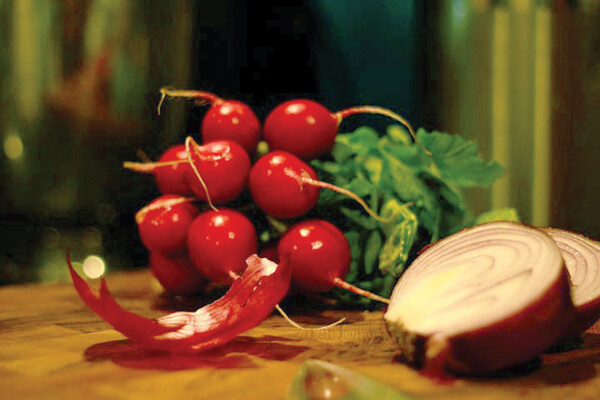1,000 New Gardens of Bozeman
Help MSU Students Transform Lawns into Vegetable Gardens
Sarah Cairoli | Wednesday Apr. 1st, 2015

Bozeman residents, get your shovels! April 11 is Dig Day and the group 1,000 New Gardens of Bozeman will be installing 15 vegetable gardens throughout the city. 15 new gardens may sound impossible but, last year they installed ten new gardens in a single day. According to Communications Coordinator Damion Lynn, they expect to have even more help this year so they can break their record and continue working toward their ultimate goal – the installation of 1,000 new vegetable gardens throughout the city.
1,000 New Gardens of Bozeman creates vegetable gardens for anyone who requests help. “We’ll help anyone,” Lynn explained, “whether they are elderly, disabled, or just unable to devote time or money to installing a garden.” One Bozeman resident requested that her entire lawn be replaced with vegetable beds. Lynn and other volunteers will get her started by installing four beds this year. They will also be installing six beds in another resident’s yard and individual beds at several other places.
On Dig Day, volunteers will clear away lawn and install vegetable gardens. The group brings soil and compost to fill the beds. Each resident receiving a vegetable bed will also get a variety of seeds and instructions on how to care for them. The group is researching ways to improve their ability to follow-up with garden recipients and provide continuing support. In the meantime, many local nurseries are willing to provide backup and answer questions for confused new gardeners.
The group brings sod cutters and pre-cut wood to make vegetable beds that are four feet by eight feet. They are looking for people to bring some elbow grease and helping hands. This year’s Dig Day coincides with a Service Saturday, so Lynn expects to get some help from those already interested in community service. A church group has also offered to pitch in, but 1,000 New Gardens of Bozeman could always use more help. Lynn estimates they will need up to 70 volunteers on Dig Day. Several local businesses donate supplies, like wood and tools but, they could also use more funding.
On April 10, the night before Dig Day, 1,000 New Gardens of Bozeman will hold a fundraiser at The Filling Station. Polecat will be playing, with Madeline and the Hawthorne Roots opening. If you are unable to get dirty on Dig Day, go have a good time for a great cause the night before. Tickets are $10 at the door, or $8 before the show at Cactus Records.
1,000 New Gardens of Bozeman is completely managed by Montana State University students, many of whom are majoring in sustainable sciences. Lynn is majoring in Sustainable Food Systems, but said he will likely change his major to Sustainable Agroecology. There are currently five active members of the group who “organize everything,” Lynn said. Another 10 to 15 students come when they can. Lynn and his fellow group members recognize that growing vegetables instead of grass is a more effective (and delicious) use of resources.
According to the U.S. Fish and Wildlife Service, U.S. residents groom about 30 million acres of lawn. We use more than 100 million tons of fertilizer and an additional 80 million pounds of pesticides to keep our lawns green every year. (Yep, you read that right – more than 100 million tons of chemicals are dumped on the ground for the sake of green grass every summer.) We also spend an average of 40 hours per lawn behind the lawnmower, a machine that emits ten times the hydrocarbons of a typical car. During the summer, the grass clippings we generate account for over 25% of landfill space. In contrast, vegetables do not need to be mowed, only harvested; instead of filling landfills, they fill hungry bellies.
Lynn and Sebastiaan Stokhof de Jong, president of the group, have been branching out beyond garden installation as well. They have been collecting coffee grounds from local shops for composting, and are thinking about turning their efforts into a business. The compost they generate is used to fill the gardens they create for local residents.
According to Lynn, a lot of research about composting is being conducted at Montana State University. An enormous pile of post-consumer food sits outside Miller Dining Hall waiting for analysis. The 16,000 pound pile is currently frozen, but Lynn hopes testing will begin as soon as it thaws and begins to break down. The University and many of its students are invested in establishing sustainable practices on campus and in the community. Transforming lawn into edible vegetables is just one way to use resources in a more productive and beneficial manner.
While 1,000 New Gardens of Bozeman has only been around for about five years, Damion Lynn and his friends have been gardening their whole lives. Lynn and his dad have a small greenhouse and several vegetable beds back home. He plans to start seedlings in his dorm room this spring, so he is ready for this summer’s growing season.
Lynn’s enthusiasm for the 1,000 New Gardens of Bozeman effort and all things related to gardening is contagious. The group has been installing an increasing number of gardens each year, and he hopes the trend continues. When asked what will happen when they reach their goal of 1,000 gardens, Lynn replied, “We’ll just have to go for 2,000.”
If you would like to help 1,000 New Gardens of Bozeman,
or if you would like to transform some of your lawn into productive
garden beds, contact the group using its Facebook page:
www.facebook.com/1000NewGardensBozeman
Sarah Cairoli will be planting extra peas this year because her Corgi likes to help himself. She can be reached at scairoli30@hotmail.com
| Tweet |
